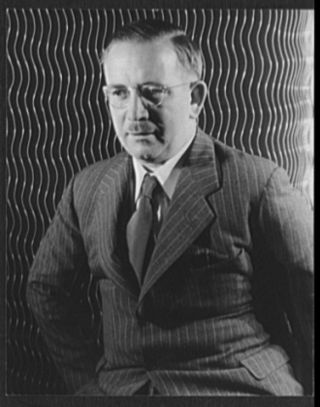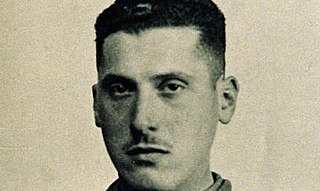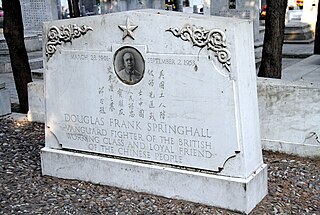
Homage to Catalonia is George Orwell's personal account of his experiences and observations fighting in the Spanish Civil War for the POUM militia of the Republican army.

The Workers' Party of Marxist Unification was a Spanish communist party formed during the Second Republic and mainly active around the Spanish Civil War. It was formed by the fusion of the Trotskyist Communist Left of Spain and the Workers and Peasants' Bloc against the will of Leon Trotsky, with whom the former broke.

Thomas Henry Wintringham was a British soldier, military historian, journalist, poet, Marxist, politician and author. He was a supporter of the Home Guard during the Second World War and was one of the founders of the Common Wealth Party.

Wogan Philipps, 2nd Baron Milford was the only member of the Communist Party of Great Britain (CPGB) ever to sit in the House of Lords.
The British Battalion was the 16th battalion of the XV International Brigade, one of the mixed brigades of the International Brigades, during the Spanish Civil War. It comprised British and Dominion volunteers.

Ralph Bates was an English novelist, writer, journalist and political activist. He is best known for his writings on pre–Civil War Spain.
Lou Kenton was an English proofreader who served as a medical courier and ambulance driver with the International Brigade and was its oldest surviving member at the time of his death.

Jewish volunteers in the Spanish Civil War refers to Jews who joined International Brigades and fought in the Spanish Civil War, which erupted on July 17, 1936 and ended on April 1, 1939.
Alexander Ethan Tudor-Hart was a British medical doctor in South Wales who was active in the Communist Party of Great Britain. He was the great grandson of American merchant Frederic Tudor and father of Dr Julian Tudor-Hart.

Sam Lesser was a British journalist and veteran of the Spanish Civil War's International Brigades. Lesser was one of the last surviving British veterans of the Spanish Civil War, and went on to serve as chair of the International Brigade Memorial Trust (IBMT), and write for the Daily Worker and its successor, the Morning Star.

Douglas Frank Springhall, known as Dave Springhall, was a British communist activist.

Richard Baxell is a British historian and the author of three books on the Spanish Civil War. Between 2015 and 2018 he was the Chair of the International Brigade Memorial Trust. He received his Doctor of Philosophy from the London School of Economics in 2002 with a thesis titled The British Battalion of the International Brigades in the Spanish Civil War, 1936–1939. As of 2020 he is a research fellow at the London School of Economics.

Bill Alexander, born as William Alexander, was a leading activist within the Communist Party of Great Britain (CPGB), most known for commanding the British Battalion of the International Brigades during the Spanish Civil War. During World War II he underwent a commissioning course at Sandhurst military academy, graduating top of his year. He then served in Germany, Italy and Northern Africa, during which he was promoted to the rank of captain in the Reconnaissance Corps. Later in life he became an author, the vice-chairman of the International Brigade Association, and the president of London's Marx Memorial Library. Alexander spent the remainder of his life promoting Marxism–Leninism, and was a member of the CPGB until the party was dissolved in 1991.
Nan Green, was a British communist who in October 1936 volunteered to join her husband George on the Republican side in the Spanish Civil War. She worked in several hospitals as a medical administrator and collator of statistics during the war and after it continued to support veterans of the International Brigade.

Peter Daly was an Irish socialist and republican who fought in the Irish War of Independence as well as serving as a volunteer in the Spanish Civil War, where he died serving with the International Brigades.
George Drever was a Scottish communist and volunteer with the International Brigades in the Spanish Civil War.

The Oxford Spanish Civil War memorial is a monument in Oxford dedicated to the 31 known local residents who fought in the Spanish Civil War (1936–1939) against Nationalist forces. Erected and unveiled in 2017, the memorial is located close to South Park, near the base of Headington Hill by the junction of Headington Road and Morrell Avenue. The memorial is dedicated to all the volunteers with links to Oxfordshire who supported the Republicans and inscribed onto the front are the names of the six volunteers in the International Brigades who were killed during the war.
Edward Cooper (1912-1937) was a British actor, communist activist, and newspaper worker, who died fighting for the International Brigades during the Spanish Civil War. He was also a close friend of Ralph Winston Fox, and John Cornford, and is memorialised on the Oxford Spanish Civil War memorial.
The Clapton Press is an independent publisher based in London E5, established in 2018.












